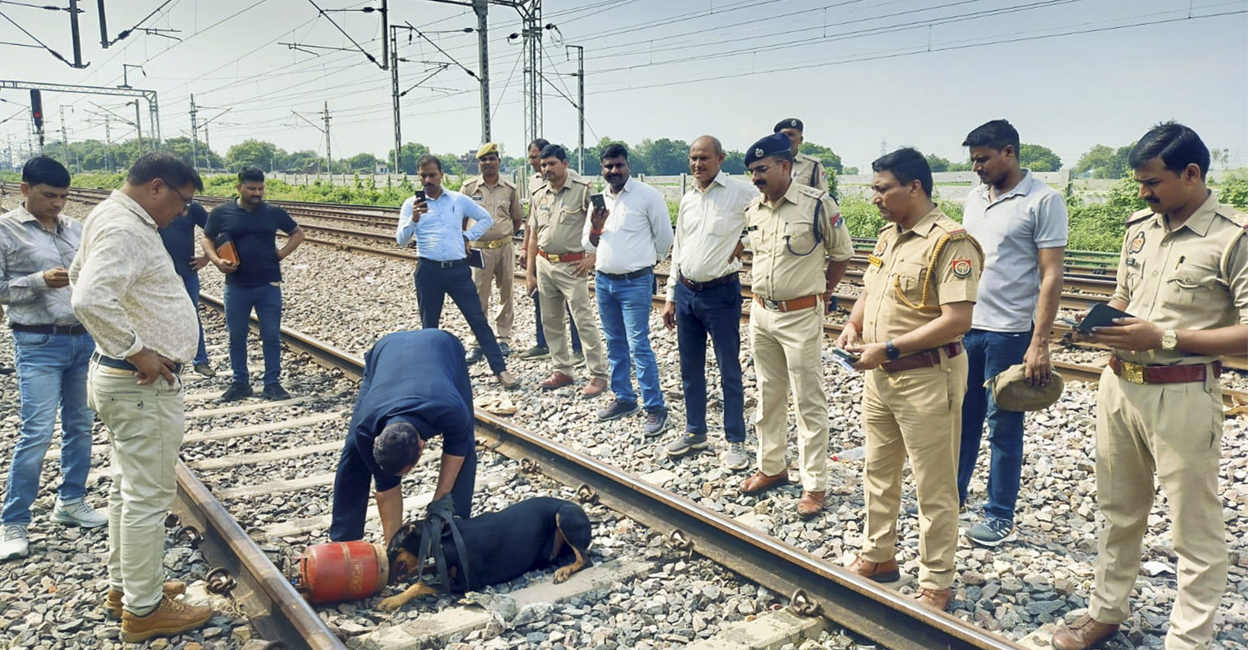In recent months, the surge in train derailments across India has raised serious concerns, not just about the safety of the Indian Railways but also about the integrity of the nation’s media. It is now becoming clear that these derailments are not merely accidents but calculated acts of sabotage designed to malign the Indian Railways and, by extension, the central government. Yet, instead of focusing on the culprits responsible for these heinous acts, a section of the media seems more intent on pointing fingers at the very institutions working to ensure public safety. Instances have surfaced where alert train drivers averted disasters by halting just in time, discovering hazardous objects like gas cylinders deliberately placed on the tracks. Such deliberate attempts to cause harm were promptly brought to light by the railway police and state authorities. Despite these revelations, sections of the media continue to demand accountability from the Indian Railways as if these incidents were the result of its inefficiency, rather than the result of intentional sabotage. This kind of irresponsible editorials does a grave disservice to the public and exposes a disturbing level of partisanship within the media.
Instead of holding those responsible for these acts of sabotage to account, certain media outlets appear more focused on dragging the Indian Railways and the central government into the mud. This isn’t journalism; it’s propaganda, pure and simple. By turning a blind eye to the facts that are readily available, these media organizations are undermining their own credibility. Their relentless pursuit of sensationalism over substance only confirms their willingness to ignore the truth for the sake of controversy and political bias. The modernization of Indian Railways is a testament to India’s technological progress. From automating signalling systems to deploying advanced safety measures, the Indian Railways has been on a path of consistent improvement. Yet, these advancements cannot always prevent incidents of sabotage, especially when thousands of kilometers of railway tracks run through remote and inaccessible areas. The conspirators behind these derailments have capitalized on this vulnerability, strategically placing dangerous objects on tracks to cause maximum damage, particularly to high-speed trains. The media’s narrative that pins the blame on the Indian Railways for these orchestrated incidents is both unfair and misleading. This kind of reporting not only undermines the efforts of the railway authorities but also serves to embolden those who commit these acts of sabotage. The fact is, these derailments are not a failure of technology or management but a failure to contain those who wish to disrupt the nation’s progress for their own selfish motives. To be more precise, anti-nationals!

What’s even more troubling is the media’s blatant bias. Instead of shedding light on the individuals and groups or even political parties, responsible for these deliberate attempts to destabilize the nation’s infrastructure, they continue to pander to the opposition, turning their attention into a tool for political mudslinging. This is a disservice not just to the Indian Railways but also to the very fabric of journalism itself, which is supposed to act as a watchdog for society, not as a lapdog for political agendas. It is no surprise that the credibility of the print media is in a downward spiral, not only in India but globally. When media outlets prioritize spreading falsehoods over reporting facts, they lose their relevance and the trust of their readers. Today, only a handful of national media channels seem to be doing justice to their role as the fourth pillar of democracy, while others continue to serve partisan interests. If the media truly wants to regain its standing in society, it must take a long, hard look at its own conduct. It should focus on holding the right people accountable, especially those involved in these criminal conspiracies against the Indian Railways. The days of sensational headlines with little regard for the truth must come to an end. The responsibility of the media is to inform the public accurately and to question those who threaten the nation’s security, not to dance to the tune of political theatrics. Therefore, responsible media should not gloss over the fact that the Indian Railways continues to battle both technological and man-made challenges. The media must rise to its role of responsible reporting. Failing to do so will only further erode its credibility, alienate its audience, and make it complicit in the crime of misleading the public. The time has come for the media to choose between being a beacon of truth or a purveyor of lies.






